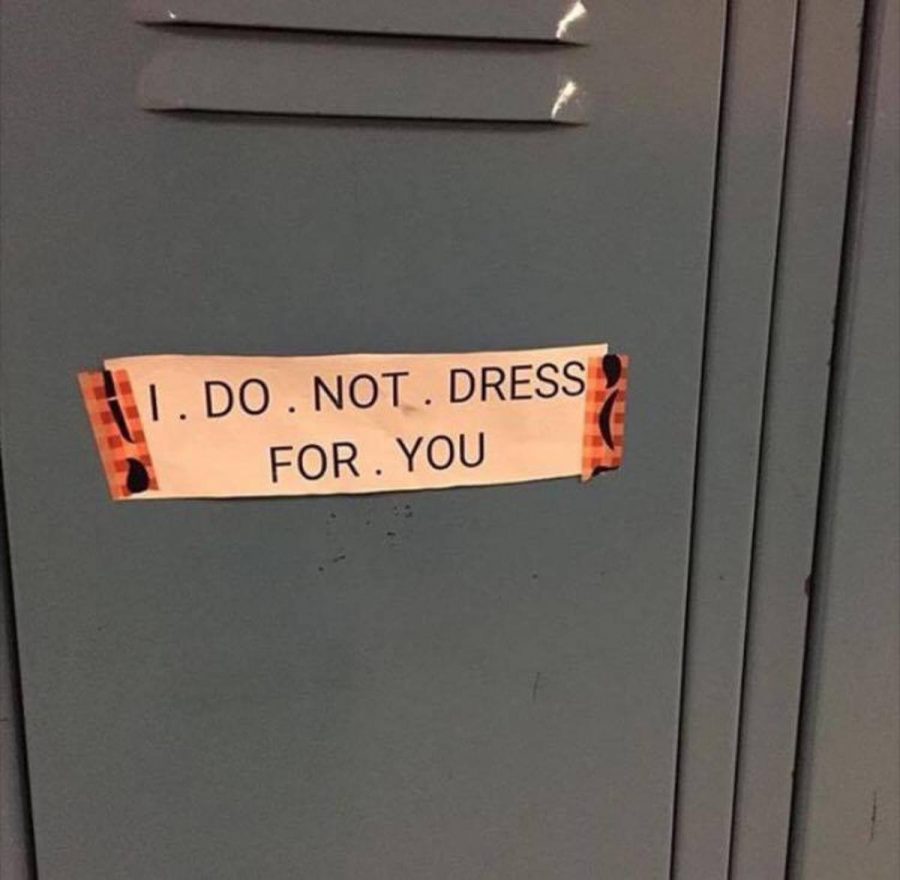
In the last five minutes of lunch at Pyle on March 9, assistant principal Scott Gitchell picked up the microphone and started dismissing the students to go to their lockers to put away their lunchboxes and head to class, just like any day. But this Wednesday, Gitchell told all of the girls to remain behind in the cafeteria.
According to multiple students who were there, he proceeded to launch into a speech about the dress code. He said that as the weather got warmer, the female students need to reevaluate their clothing choices. Gitchell said that it appeared that some of the girls had outgrown their clothes from the previous spring and that they should ask their parents to buy them new ones. He added that tank tops and “short shorts” are inappropriate. Students said the tone and manner of the speech implied that the clothes were “distracting,” though Gitchell said he had never used such word. Principal Chris Nardi issued an apology regarding the alleged suggestion.
“I wanted to apologize to the girls for it being implied or stated directly that the way girls dress was a distraction for boys because that’s not what we intended, that should not have been said, and that’s not what we think,” Nardi said.
This interaction left many of the students feeling incredibly uncomfortable, and for good reason. The next day, some taped papers saying “I don’t dress for you” on their lockers or clothes, and eighth graders Alex Pomper and Navya Mohan wrote a letter to the administration protesting the speech.
Many things were wrong with the way this situation was approached by Gitchell. According to the MCPS “A Student’s Guide to Rights and Responsibilities,” students may be asked to change if their clothing is “lewd, vulgar, revealing, or of a sexual nature.” While the administration does have the authority to respectfully enforce this dress code, the overgeneralization that came with addressing such a large crowd, and gender discrimination implied by only addressing girls, sends a message to these girls that their male peers could view their bodies as sexual objects.
Pomper and Mohan’s letter stated that “this lecture entirely avoided the root problem, which is that our school doesn’t teach people to respect others, regardless of clothes.”
As if sending that message wasn’t bad enough, for a male authority figure to deliver it makes the implication even worse. A female administrator, like Pyle Assistant Principal Kim Johnson-Redder, may have been able to more effectively address the girls as someone whom they would be more comfortable and better able to identify with.
Multiple students said that despite not having violated the dress code themselves, they felt a sense of shame and embarrassment, as if they have done something wrong and need to correct themselves. This is exactly what leads to victim blaming in sexual harassment and assault. Slut-shaming makes excuses for male behavior, and wrongfully imposes a double standard upon females.
Additionally, the separation of genders implied that dress code was a non-issue for boys and made some students who are questioning their gender identities feel uncomfortable.
Gitchell said that he would not separate genders again, but felt that he had addressed the girls fairly.
On Thurs., March 10, Principal Chris Nardi apologized to all of the students about Gitchell’s speech. He then spoke separately to the boys about the dress code.
A girl wearing a tank top to school does not and should not read “open season” to boys. Boys should be taught to control themselves and respect girls as their equals. Focusing on creating a community of respect and understanding is more conducive to promoting the best learning environment possible than the effects of a dress code would ever result in.
